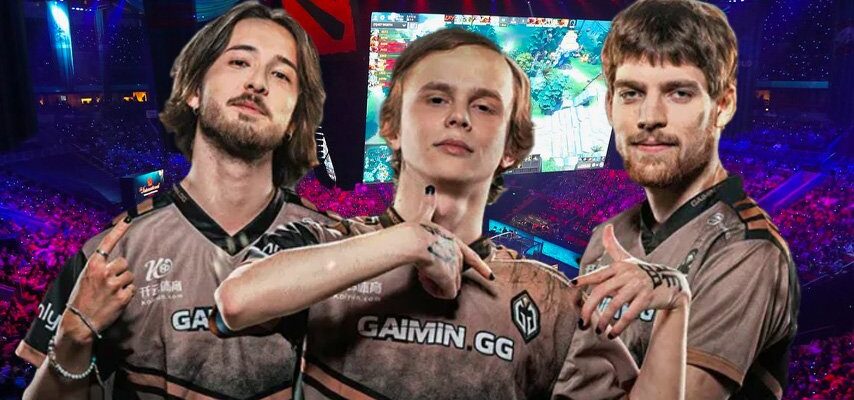The world of professional Dota 2, accustomed to high-stakes plays and last-minute heroics, recently found itself grappling with a different kind of drama: the abrupt withdrawal of Gaimin Gladiators from The International 2025. This wasn`t merely a team stepping aside; it was a saga involving a top-tier roster, a seasoned organization, and a dispute that quickly spilled onto social media, leaving fans and analysts alike piecing together a complex narrative.
A Twist in the Tale: Player Claims vs. Organizational Response
The initial bombshell dropped on August 23rd, when Gaimin Gladiators announced their non-participation in Dota 2`s most prestigious tournament. This was swiftly followed by a public statement from Quinn Callahan, the team`s mid-player, who asserted that the club had unilaterally decided to pull out, despite the players` eagerness to compete under the Gladiators banner. A clear cut case of corporate overreach, it seemed.
However, the plot thickened considerably when Nick Cook, the CEO of Gaimin Gladiators, offered a counter-narrative, painting a picture far more nuanced than a simple unilateral decision. According to Cook, the genesis of the conflict lay not with the organization`s desire to withdraw, but with a surprising request from the players themselves.
The Quest for Independence: A Double-Edged Sword?
“In response to Quinn`s post, where he stated that GG unilaterally decided to withdraw from TI — his statement is misleading. We did withdraw the team from TI, but the basis for this decision was the team`s request to nullify their contracts with Gladiators so they could compete at the tournament as independent players,” Cook stated, challenging the public perception.
Cook`s revelation introduced a critical new dimension: the players, at some point, had sought to sever their ties with the organization to compete independently. This desire for autonomy, while understandable in a fiercely competitive and individual-driven esport, inadvertently set off a chain of events that would ultimately lead to their exclusion from TI2025. The Gladiators, surprisingly, had agreed to explore this path, even notifying Valve of their inability to field a team under their existing structure due to the complexities of substitution rules.
But here`s where the narrative takes a turn towards the truly perplexing. Cook further elaborated that the team “did not negotiate with us to finalize settlement terms,” and by the time they seemingly reconsidered and expressed a desire to participate under the GG tag, the window of opportunity had effectively slammed shut. The organization found itself unable to guarantee their participation, citing a lack of confidence in the team`s stability or their ability to represent the brand.
One can almost hear the exasperated sighs from the organizational side: a request for independence, followed by a failure to act on it decisively, and then a last-minute change of heart when the consequences became apparent. It`s a classic case of wanting to have your cake and eat it too, only to find the cake has gone stale while you were deliberating.
The Unseen Legal Battlefield and Future Implications
Both sides have been notably tight-lipped about the granular details, consistently citing “legal restrictions.” This veil of confidentiality only adds to the intrigue, suggesting that the disagreements run deeper than public statements reveal, likely involving intricate contractual clauses, performance obligations, and the thorny issue of intellectual property rights over team slots and branding.
This situation serves as a stark reminder of the evolving, often volatile, relationship between professional esports players and the organizations that support them. While players seek greater autonomy and better terms, organizations strive for stability, brand integrity, and a return on their significant investments. The Gaimin Gladiators saga highlights the delicate balance that must be struck, and the often-unforeseen repercussions when that balance is disturbed.
As The International 2025 approaches, Gaimin Gladiators will be conspicuously absent, a powerhouse team sidelined by internal discord and the complexities of contract negotiations. Whether this marks a temporary setback or a permanent fracture remains to be seen. What is clear, however, is that this incident will likely prompt a re-evaluation of player contracts, organizational communication protocols, and the very definition of team loyalty in the high-stakes world of professional esports. For now, the echoes of this contractual skirmish will undoubtedly resonate throughout the competitive scene, a cautionary tale of ambitions and missteps.









